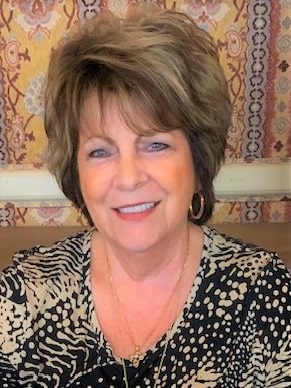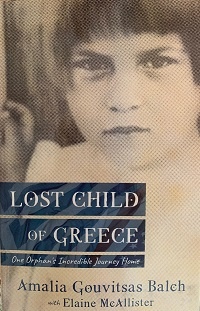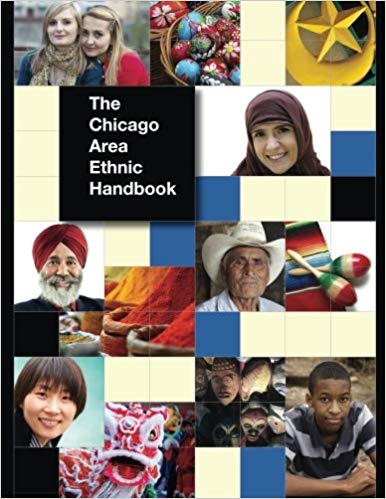Meet Greek-American Author Amalia Gouvitsas Balch
Adopted into a loving home, Greek-American Author Amalia Gouvitsas Balch relied on her faith in God and the love of her family to get her through. But something was always missing. The thoughts haunted her: where did she come from and who was she, really?
Following Amalia’s birth in the 1950s in Greece, her birth family left her at an orphanage in Patras. During the first five years of her life, she lived there, as well as with a foster family. Until one day, she was adopted by an American family and found herself on a plane on the way to a strange new land. She grew up in Los Angeles, and as an adult, has lived in many areas, including Alaska, Texas, and Colorado. She’s called Mesa, AZ home for the past 20 years.
This mother of one and grandmother of two has been very active in her church, focusing on various local and international ministries. She’s traveled the world and has multiple hobbies. Over the years, as her desire to trace her past gained steam, she became involved with SEASYP (Association of the Investigation and the Search of Children Adopted without the Consent of Their Natural Parents). First formed in Thessaloniki, the group spread to Athens, and has an active chapter in Patras. In 1995, Amalia co-founded the American arm of the Patras branch and has helped several families reunite. She’s spoken extensively and been interviewed in the press on this dark period of Greece when thousands of babies were adopted in an illegal baby-selling scandal.

One of the Lucky Ones
Not all history is glorious, and this is a perfect example. Amalia is one of the lucky ones. Some children adopted from Greece during this time found themselves in abusive homes, struggling to make it through childhood. Amalia’s adoptive family was loving and nurturing. Leaning on her faith, she thrived. She didn’t know then that she was among the children that were basically sold to adoptive parents. But she did know that she was different. She had vague memories of the orphanage, her foster family. Amalia knew, even as a little girl, that life was complicated. She loved her family dearly, but wondered, “Who am I? Where do I come from?” A lot of unanswered questions for a young person, trying to find herself and her place in the world. Her adoptive parents couldn’t have been more wonderful or supportive. Yet, something nudged her, something no one could understand. So, she kept these feelings inside, until they became bigger than life. And what could be bigger than discovering your truth?
After much prayer, Amalia decided the time had come. But she had forgotten how to speak Greek, and with the added layer of the shame of this time, plus haphazard record-keeping, it was a slow and exhaustive process. For more than seven years, she dug into her past. Armed with only her adoption paperwork, she visited Greece several times.
Her birth family still remained a mystery. In the meantime, she helped other adoptees through SEASYP. The revelations were stunning. “I learned that out of the 339,913 orphans in Greece, according to the Greek Ministry of Social Welfare, at least 2000 children were adopted by American families in the 1950s WITHOUT their natural parents’ permission. And this is very likely a low estimate,” Amalia explained. “Some parents were told their babies died and were sent home without a body or paperwork. Some, due to poverty, placed children temporarily in orphanages so they could be fed, only to return to learn they’d been adopted. Others, due to the stigma of illegitimacy, left babies anonymously at orphanages.”
Finding a needle in a haystack
Amalia enlisted the assistance of people who spoke Greek and had the knowledge to help in the search. With every triumph came a dead end. The truth remained elusive. Greeks are led by the unspoken law of “ti tha pei o kosmos?”, what will people say? Shame is a powerful driver. Did her birth mother know what happened to Amalia? Probably not. Still haunted by the secrets, some of her birth family has remained tight-lipped. While she enjoyed a reunion with members of her birth family and stays in touch, some secrets remain hidden, perhaps buried with the previous generation.
“My heart broke sitting across from my mother’s brother. I could tell the truth haunted him.”
Every person involved is affected in different ways. It’s difficult to face that truth, even decades later.
“I carry hope that eventually I’ll have conclusion on things that are still a mystery. This search isn’t over. I can be OK with what I’ve learned, but I still carry the hope, and I pray, that the truth will eventually be revealed.”

Sharing her story
Lost Child of Greece is a story 10 years in the making.
“It took 10 years to be emotionally ready to tell it. It’s still difficult to talk about it. But there’s a time for everything. I needed to sort out a lot of things before I could share. A lot of research was necessary to make it an accurate one. A worthy one. And honestly, if I’d written it sooner, it wouldn’t be the story that it is,” Amalia shared.
The author said her friends and family encouraged her to share the story, not just for herself.
“They told me I had to share it for all the innocent children and the broken-hearted and disregarded families left behind devastated over a lifetime by the horrific loss of a child.”
Amalia also wrote the story to honor her biological and adoptive families.
“I wanted to give and restore honor to my biological mother and to express my devotion of my adoptive parents, in whose memory I dedicated the book, along with honor and praise to my heavenly Father.”
Being a voice for others
Through all the drafts and the highs and lows of writing something so personal, she realized another important objective—to give voice to others like her.
“I needed to be honest and transparent, with the hope it might encourage and bless another soul. I remember suffering for so many years, pushing down emotions and how I really felt. Not acknowledging the pain; its impact. It was a filter that touched every aspect of my life, and I saw the world through it. I know I’m not the only one that has experienced this pain. Many can’t articulate it. They’ve used other measures to cope. I wanted to give them the freedom to say, ‘I feel that way. I can identify’ It’s a lifelong healing. Things happen. We compartmentalize, but they’re always impacting our life in one way or another and we have to deal with them for our sake. When you expose your soul, you don’t know how it will be received. I wanted to take the risk. To be real, transparent, and honest.”
“My advice to adoptees is, don’t give up. With God all things are possible. Hold onto hope. Don’t become discouraged in the pursuit or hurt by the outcome. A hard truth is better than a kind lie. Living authentically, knowing who you are and where you came from—and who we look like—is necessary for peace of heart and mind.”
Greek-American Author & Adoptee Amalia Gouvitsas Balch
What’s next
Amalia is working on a Greek translation of Lost Child as well as two children’s books. And trying to re-learn some Greek. She celebrates her Greek heritage whenever she can.
Review of Lost Child of Greece
In this heart-rending memoir, Greek-American Author Amalia Gouvitsas Balch takes us on the roller coaster ride of life as an adoptee and the search for ones’ truth. She opens us to the heart, soul, and mind of an adoptee and reveals the pain, the sorrow, and the quest for identity. In Lost Child of Greece: One Orphan’s Incredible Journey Home, we’re reminded the importance of knowing who we are, where we come from, and how it all weaves together to make us who we are. People don’t want to remember dark times. They don’t want to admit their culpability or shame. But this powerful story reminds us of the long-lasting wounds these secrets create. Secrets that wound so deep, they scar the future. This is not the first such account I have read. I pray that all the lost children of Greece—and other countries too—find their truth, their way home. This is a story you won’t want to miss.
To purchase a copy, email Amalia here or buy it at Amazon.
I am an Amazon affiliate. As an Amazon associate, I earn from qualifying purchases. By clicking through the links, when you make a purchase, I will receive a small commission at no additional cost to you. It helps to support my writerly endeavors Thank you!
Lost Child of Greece: One Orphan’s Incredible Journey Home
By: Amalia Gouvitsas Balch with Elaine McAllister
Self-published
ISBN: 978-1-7371567-0-3
Are you on my email list? Get my monthly newsletter and stay up to date on all my latest news, learn about recent blog posts, and more. Click HERE to join. It’s FREE.
Read more:
Beyond the Third Door by Maria Heckinger


I Too was an Orphan from Patras. Born 08/08/1949. Never knew my birth mother. Father unknown. I came to America in the Spring of 1956. On a plain knowing no more than I was to meet a Mother and Father. I still remember my fear of that flight. But when we crossed the Atlantiic, I looked out of the window and saw. “America”. No english, not a word. I was fortunate, I was adopted by Greeks. My parents were active in AHEPA and the Daughters of Penelope”. My Yaya knew some english, but was my second mom. She helped raise me. Both of my parents worked.
I was blesse. My greatest in the jurney of life are my wife, my three kids and a grandaughter. When I think of being picked from a stack of pictures, I just can’t get over being a 7 year ild and being wanted. But I was. I asked my mom around the age of 10, how qnd why me. Her response, ” We reached into the grab bag of life and came up with a perfect apple.. Niko we knew that an older child could be more difficult to raise but.your Dad said, you would be our devoted son. There was no discussion.
And devoted I was. An only child with more love and respect from two people that to this day are my mental mentors in life.. I see life as a Glass more than half full. Even when at times Life has given me much pain. The loss of my Father to Brain Cancer in 1972. The loss of my Yaya in 1979.
Not every9ne loved me in the family of extended relatives. One called me a Bastard Child. Another said I wasn’t a Greek, because I didn’t know of a Father. At tge time those things were said, it hurt. But I realized two great things about life. First, others near you have had ar greater tragedies in life. My Moms father had a son in a mental institution from the age of three until his death at 23.. That same Grandfather on his death bed said, ” Niko., take care of your Mother, even though you are not Family”. That was a scar and a pain that never goes away. The second thing is Forgive others for there mistakes and learn from your own mistakes or misfortune turn of events.
In closing, my second marriage was a gift from God. My wife wanted a Family and she had a complete major miscarriage and was nor able to have children. We waited 9 years before we were able to adopt two biological sisters, ages four and five. They too were from pictures. In a neighboring co7ntry to the north of Greece. Now our yo7ngest is 28 and pregnant. She was scared to death to tell her Father. But when we talked, I said to her, honey, Your my daughter and that Baby is going to by our second grandchild. She looked at me and said, “Dad, you and Mom Gave me life, I could never abandon by baby. A choked up we hugged and understand that life begins at conception, not 9 moths later.
To every Orphan se3k what you need ro be content. But be thankful that you were cared for and not tossed out as human carabsge.
Amazing story! God bless!